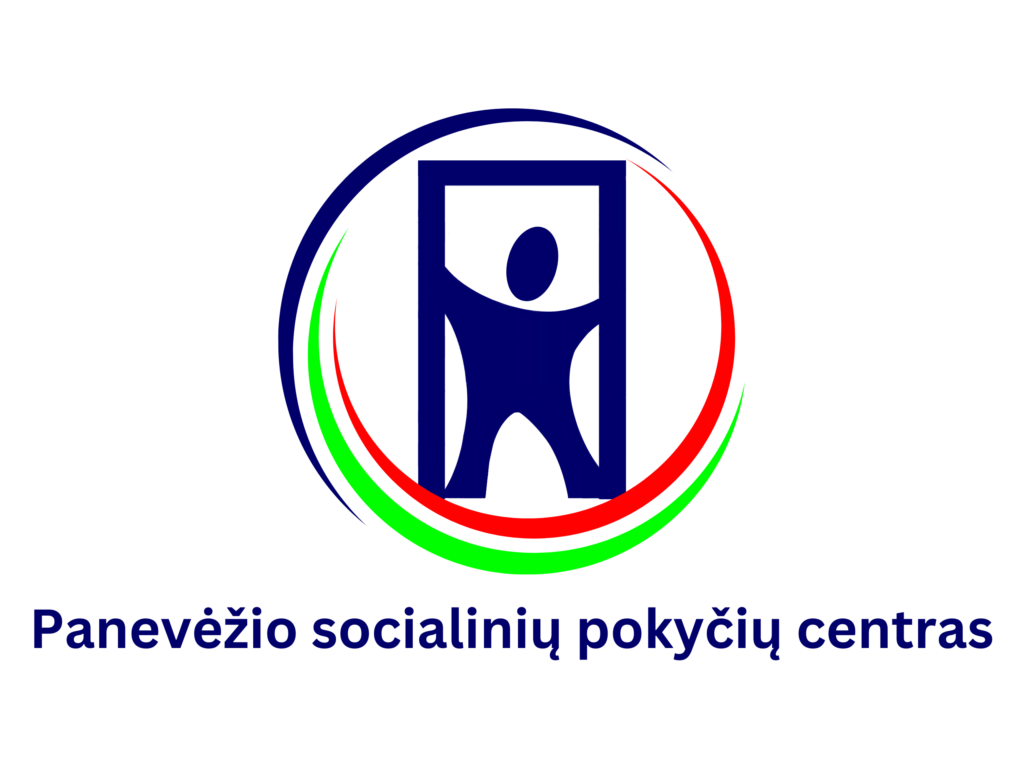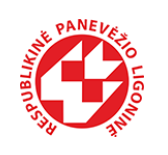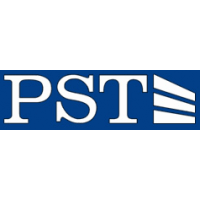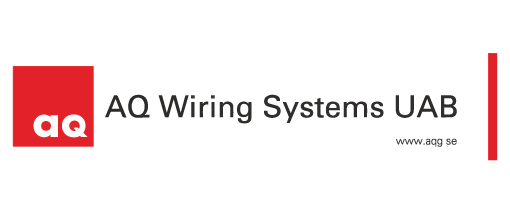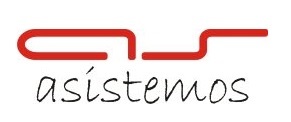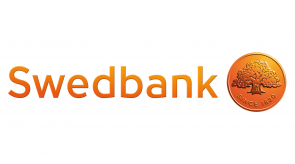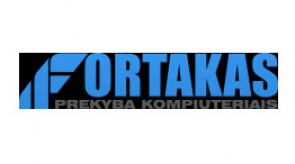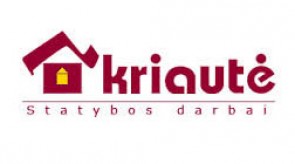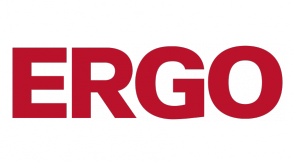Electronics Engineering and Robotics
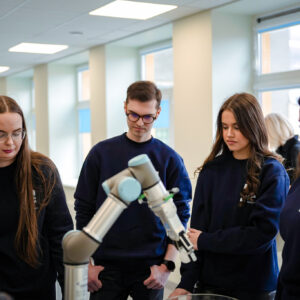 Study mode and duration time: full-time (3 years)
Study mode and duration time: full-time (3 years)
Study programme is carried out: Panevėžio kolegija/State Higher Education Institution, Faculty of Technology Sciences
Degree and professional qualification: Professional Bachelor of Engineering Sciences
Volume of the study programme in credits: 180 ECTS
Why choose this programme: after completing this study program, students will understand the fundamental principles of electronics and electrical circuits, be able to design functional units of electronic systems, and program controllers. They will acquire basic knowledge of industrial robots, learn to program them, and control robotic technological processes. The knowledge gained in electronics, electrical engineering, and robotics will provide excellent employment opportunities in industrial and industrial service companies.
Focus on practice: students will conduct Professional, Technological 1, Technological 2, and Final practices in companies in the Panevėžys region, such as Ltd “Tetas”; Ltd “ADAX”; Jsc “AQ Wiring Systems”; Ltd “Schmitz Cargobull Baltic”; Public Institution Panevėžys Mechatronics Center; Sp “Prothorithm”; Ltd “HARJU ELEKTER”; Jsc “Lietkabelis”; Ltd “Kemek Engineering”; Ltd “Serpantinas”; Ltd “Kalnapilio – Tauro group”; Jsc “Roquette Amilina”; Jsc “Pieno žvaigždės”; Ltd “Automatikos sistemos”; Ltd “IOCO Packaging”; Ltd “PKC Group”; Vocational Training Center and others. Panevėžio kolegija/State Hogher Education Institution has concluded cooperation agreements with all listed companies.
Please check Rules for Admission for foreigners
| General Subjects |
|---|
| Professional Foreign Language |
| Professional Ethics |
| Study Fields Subjects |
| Physics |
| Applied Mathematics |
| Environmental, Human and Fire Safety |
| Electrotechnics |
| Electrotechnical Materials |
| Electronics |
| Electronic Systems Programming |
| Practical Informatics |
| Computer Graphics |
| Embedded Systems |
| Practices |
| Electronics practice |
| Study Fields Subjects |
|---|
| Digital Control systems |
| Automation Control Systems |
| Automation and Measurement Technique |
| Power Electronics and Energy Converters |
| Control of Electric Devices |
| Control of Mechatronic Systems |
| Controllers |
| Internet of Things Technologies/Sustainable Development A1 |
| Technologies of Smart Devices/Sustainable Production A2 |
| College Established and Optional Subjects |
| Students are allowed to select general optional college study subjects which have been foreseen by the Director’s order (PD1) as well as alternatively selected optional subjects provided by the committee of the study programme |
| Practices |
| Professional practice |
| Technological I practice |
| Study Fields Subjects |
|---|
| Applied Mechanics |
| Basics of Robotics |
| Robot Programming |
| Electronic Systems Design |
| Applied Research |
| Engineering Economy |
| Project Management |
| College Established and Optional Subjects |
| Students are allowed to select general optional college study subjects which have been foreseen by the Director’s order (PD2) as well as alternatively selected optional subjects provided by the committee of the study programme |
| Practices |
| Technological II practice |
| Final practice |
| Final Project |
At PANKO, studies are built around practice, innovation, and real career opportunities.
- Practice-oriented studies – close cooperation with employers and the use of modern technologies prepare you for today’s job market.
- Small study groups – personal attention and individual support for every student.
- Hands-on learning – modern laboratories, advanced equipment, and real business projects.
- Lecturers with real-world experience – industry professionals from different cities who share up-to-date, practical knowledge.
- Extensive network of business partners – nearly 300 cooperation agreements ensure high-quality internships and open doors to future employment.
- International opportunities – study or complete internships abroad with the Erasmus+ programme for up to 12 months during your studies.
- Comfortable student life – a college dormitory located just a 10-minute walk from the city center.
- A strong and supportive community – lecturers, students, and partners working together to create success.
At PANKO, you don’t just gain knowledge – you turn it into real experience, international exposure, and strong career prospects.
Join the PANKO community — because HERE is the start of YOUR career!
Access to Professional Activity: graduates of Electronics Engineering and Robotics can work in various companies in Lithuania and other European countries, including joint-stock companies and private enterprises. The acquired qualification grants the right to work as an engineer in electronics design and manufacturing companies, as well as an automation and robotics systems engineer in robot integration firms. They can work with computer-aided design, electronic system control, and programming software, collect and interpret data necessary for decision-making, and effectively communicate information, ideas, problems, and solutions. As a result, this profession is in high demand and has great career prospects in today’s job market.
Opportunities for international studies: students of the programme have the opportunity to study according to the ERASMUS+ student exchange program.
Learning outcomes:
1. Knows the fundamentals of general mathematics, physical, and/or technological sciences, allowing to understand and describe the processes taking place in the field of electronics engineering studies.
2. Acquires fundamental and modern knowledge in the field of electronics and electrical engineering studies applicable in practice.
3. Is able to analyze processes and products in the field of electronics engineering studies, understand and interpret the obtained results.
4. Is able to solve engineering tasks by selecting appropriate methods, experimental, and production equipment.
5. Understands design methodologies, can apply specialized software to analyze processes and manage data designing processes and products in the field of electronics engineering studies according to established technical, economic, and environmental requirements.
6. Is able to find, organize, and interpret the information necessary for electronics engineering studies.
7. Is able to perform necessary experiments to solve engineering tasks, analyze the obtained results and present conclusions.
8. Possesses skills in working with equipment used in the field of electronics engineering studies.
9. Is capable of practical problems solving in the field of electronics engineering studies.
10. Is able to solve engineering tasks individually and in a team. Can communicate with the engineering community and the general public in proper Lithuanian and at least one foreign language. Understands the impact of engineering decisions on society and the environment, adheres to professional ethics and engineering standards and understands responsibility for the results of engineering activities.
11. Can understand the basic aspects of project execution and management at the engineering activity level and understands the importance of lifelong learning and is prepared for it.

